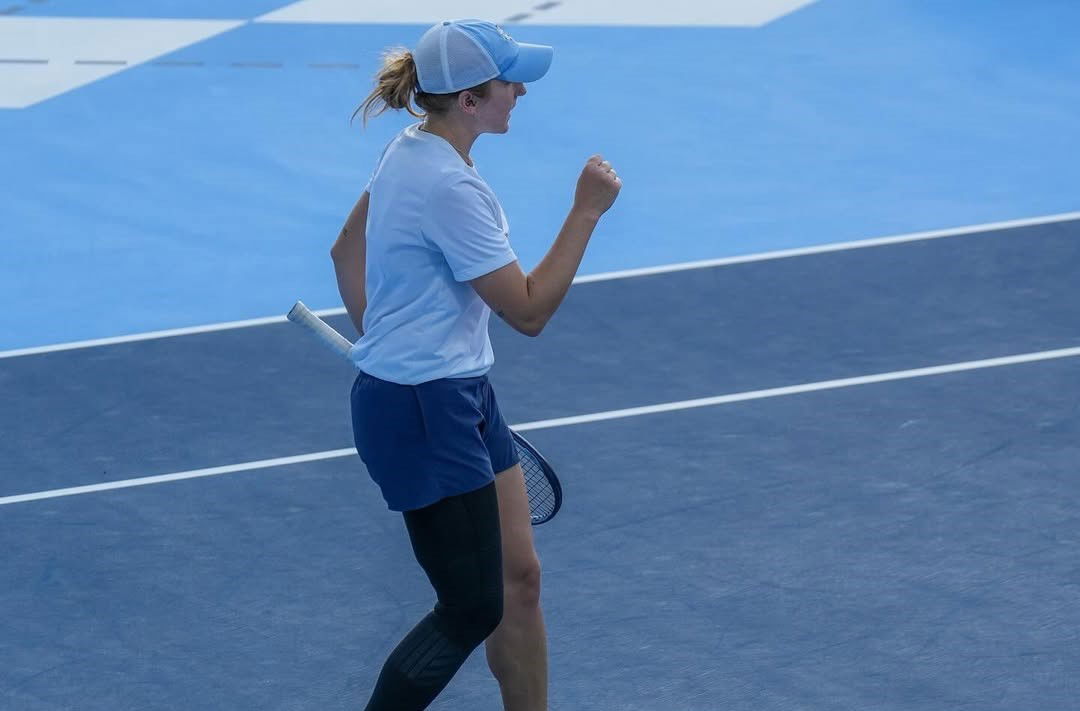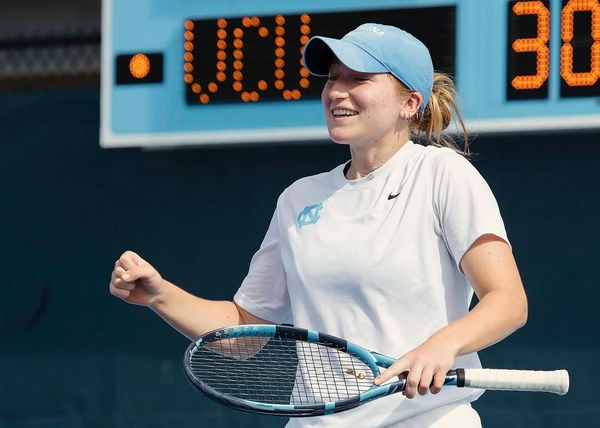
Imago
Source: Instagram/@rs.brntmr

Imago
Source: Instagram/@rs.brntmr
The Land of the Free, the country where dreams come true, it’s the place where talents like Frances Tiafoe can come from nothing to become a global star. The good old United States of America is the place you want to be. But what if you are not compensated for your talents and efforts? What if you cannot claim the money you have rightfully earned? What if you play in the US Open and still don’t get paid?
Watch What’s Trending Now!
That is exactly what is happening to collegiate tennis players who come under NCAA restrictions. But the situation could change soon thanks to a lawsuit filed by a couple of youngsters. The developments would have lasting implications for the fabric of college sports. So, let’s try to understand what it’s all about.
ADVERTISEMENT
Why is the NCAA being sued by certain US Open participants?
The latest development is part of a litigation that was started by University of North Carolina student Reese Brantmeier in 2024. She is a tennis player who decided not to go pro. Rather, she has decided to keep her amateur status and complete the NCAA term. But her petition is aimed at bringing about a change in the NCAA’s rules, which only allow students to accept a small part of the money they earn by participating in non-NCAA events.
And after the latest development, her lawsuit is set to get bolstered. She will be able to bring many other similar aggrieved parties under the same umbrella, all against the NCAA. As per her lawsuit, the complaints are pretty straightforward. “Under long-standing amateurism regulations, the NCAA prohibits Tennis Student-Athletes from accepting cash awards, bonuses, and other monetary prizes (collectively, ‘Prize Money’) awarded by third parties for their performance in non-NCAA competitions, such as the U.S. Open Tennis Championships.”
Top Stories
Novak Djokovic Retirement Speculations Explode After Emotional Australian Open Speech: “It’s Been a Great Ride”

BREAKING: Carlos Alcaraz Defeats Novak Djokovic to Claim Career Grand Slam at the Australian Open

Who Is Sitting Beside Rafael Nadal at the Australian Open 2026 Final? All About His Agent Carlos Costa

Carlos Alcaraz Puts Coaching Controversy to Rest After Australian Open Glory

John McEnroe Brutally Calls Himself “S***” While Reacting to Novak Djokovic’s Australian Open Feat

The provisions even provide that if a student athlete accepts any prize money beyond the yearly $10,000 limit from non-NCAA tennis competitions, such student will stop being eligible for intercollegiate competition in the sport of tennis. What does that mean? Well, it meant 2025 Wimbledon participant Oliver Tarvet had to forgo more than $90,000. He earned it after reaching the second round of the Championships.
ADVERTISEMENT

Imago
Credits – Instagram @rs.brntmr
Like him, Reese Brantmeier had to forfeit the majority of what she earned at the 2021 US Open. As a 16-year-old and still in school, Brantmeier would earn $48,913 for her participation. “However, due to the NCAA’s Prize money restrictions, Brantmeier was forced to forfeit much of that money to maintain her collegiate eligibility,” read her court filing. Moreover, Brantmeier was barred from competing in the UNC because of the expenses she claimed (hotel room charges where she stayed with her mother) during the 2021 US Open event. Only after paying $5,100 in charitable contributions was she allowed to be back in the NCAA fold in 2023.
ADVERTISEMENT
She is going to be there in the 2025 US Open. And this again raises the concern that her efforts may earn her accolades, but she would be deprived of financial compensation. Brantmeier also has Maya Joint as a co-plaintiff in the current legal battle. For the ones who don’t know, Maya Joint recently won the Eastbourne Open before the 2025 Wimbledon.
And the 20-year-old also made a splash at the 2024 US Open by reaching the second round. She defeated Laura Siegemund in the first round, which eventually saw her get a total cash prize of $140,000. Well, all of it was supposed to be hers, but the NCAA law meant she had to forfeit most of it.
“Plaintiffs seek relief on behalf of themselves and proposed Damages and Injunctive Relief classes from the application and past effects of the NCAA’s Prize Money Rules, to compensate class members for past forfeited amounts and to allow them to retain Prize Money for their performances in non-NCAA competitions without losing their collegiate eligibility,” the lawsuit filings said.
ADVERTISEMENT
Brantmeier’s lawyers further argued, “The NCAA’s arbitrary rules restrict the amount of Prize Money that Student-Athletes competing in Tennis may accept, causing anticompetitive harm to the markets for their labor and reducing their earning ability.” Now that the ball has got rolling, we keenly observe how things develop. Reese Brantmeier and Maya Joint will need active supporters beside them.
More about the lawsuit against the NCAA
As per WBT.com, US Chief District Judge Catherine Eagles has given the indication that she is likely to expand Reese Brantmeier’s lawsuit into a class-action. This will cover other collegiate tennis players across the country. “It is highly likely the Court will grant the motion for class certification,” Eagles wrote in a text order on July 15. This came eight days after her hearing on the motion to turn Brantmeier’s lawsuit into a class-action case.
ADVERTISEMENT
The latest order of the federal judge said that Brantmeier and Joint “SHALL present a draft proposal about class notice to the defendant (NCAA) within five business days. The proposal shall include a proposed notice to both the injunctive and damages class members, a method for its distribution, a schedule for opting out of the damages class, and any and all other matters requiring resolution related to notice.”

Imago
Credits – Instagram @maya.joint
The next few days will be crucial for either party. More so for the Brantmeier and Joint team, who will need as many voices as they can get. And the plaintiffs (Brantmeier and Joint) and NCAA “shall meet and confer” no later than July 29. The thing is that Class Action certification still hasn’t been officially granted. So, that leaves things in limbo right now.
ADVERTISEMENT
According to February court filings, Brantmeier aims for the lawsuit to affect all collegiate tennis players connected to the NCAA dating back to March 19, 2020. The decision to focus on tennis was not the initial plan for the UNC student. Her first lawsuit included athletes from multiple college sports who have been affected by NCAA prize-money restrictions. She included athletes associated with individual sports defined by the NCAA, like women’s bowling, cross country, women’s equestrian, fencing, golf, gymnastics, rifle, skiing, swimming and diving, tennis, indoor and outdoor track and field, women’s triathlon, and wrestling. But after an appeal for an injunction was turned down by Eagles, Brantmeier decided in November 2024 to focus just on tennis.
More developments are likely to come to light over the next few days.
ADVERTISEMENT
ADVERTISEMENT
ADVERTISEMENT
ADVERTISEMENT
